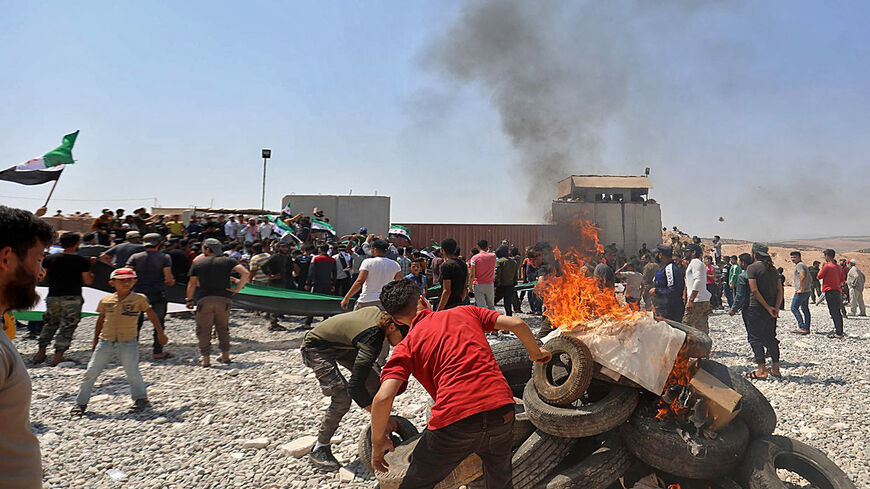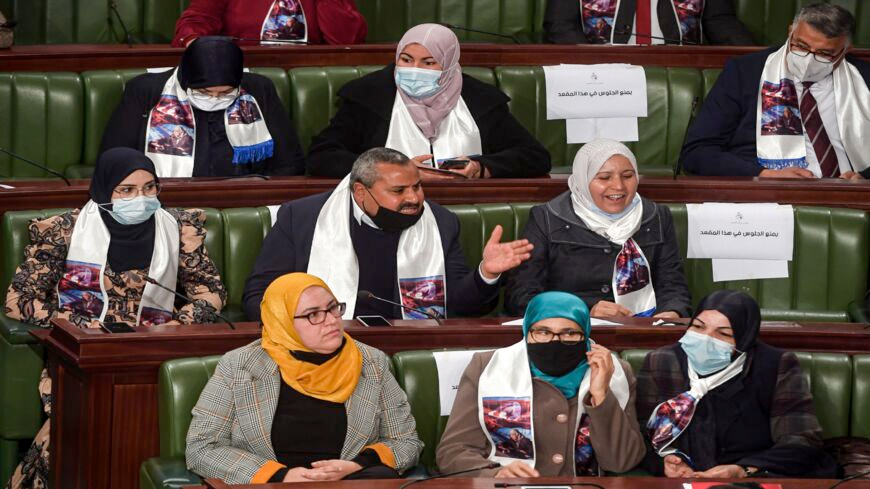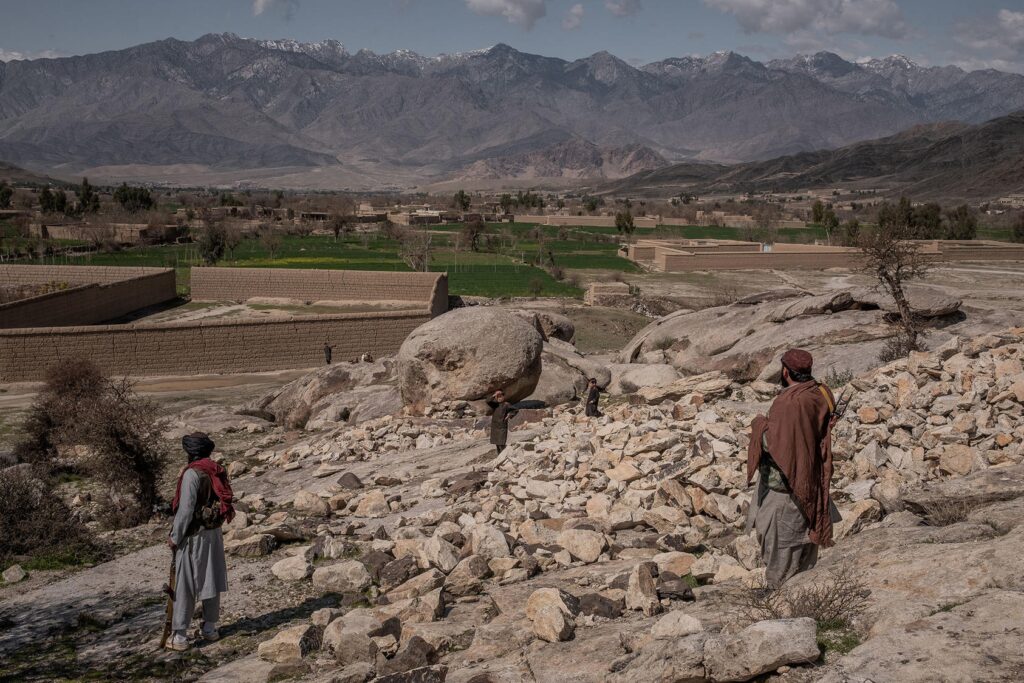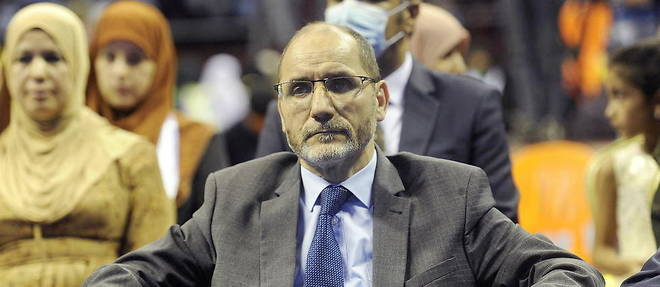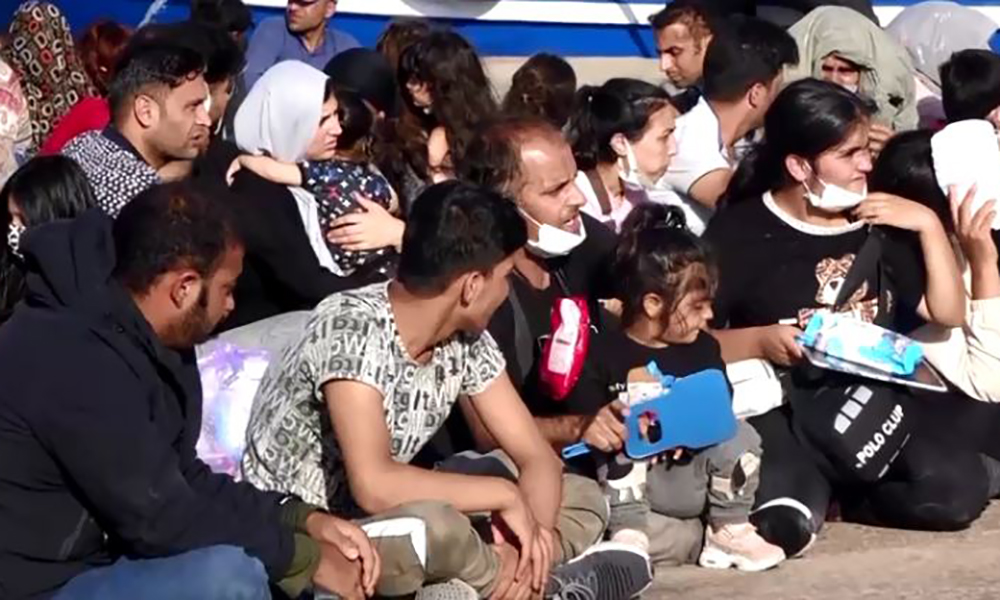Tunisian President Kais Saied’s firing of Prime Minister Hichem Mechichi and his suspension of the parliament and removal of lawmakers’ immunity met with approval from many Arab states. These measures taken by Saied, aimed at removing from power the Ennahda party, headed by parliamentary speaker Rachid Ghannouchi, which is an affiliate of the Muslim Brotherhood (MB), were perceived as a historic move marking the end of the MB era in the country that spearheaded the Arab Spring uprisings in the Arab world. Many Arab countries, including Egypt, Saudi Arabia and the UAE, which regard the MB as a terror organization seeking to destabilize their own regimes, praised Saied for taking crucial measures to extricate Tunisia from the economic, political and healthcare crisis it is experiencing. An editorial in the UAE daily Al-Khaleej, for example, expressed complete support for Saied and his decisions, stating that his moves had saved Tunisia from final collapse and from the “nightmare” of MB rule. Moreover, Al-Khaleej’s July 14 editorial, published 10 days prior to Saied’s dramatic measures, stated that there was no escape from a “second revolution” in Tunisia that would “correct a historic mistake that allowed the MB to take hold of the state and to sow in it corruption and destruction.”
Similar claims were made in the Egyptian press, which highlighted the similarity between the current events in Tunisia and President Al-Sisi’s deposing of the MB rule in Egypt, headed by Muhammad Morsi, in 2013. Articles in the Saudi press commended Saied for “delivering a blow” to the “terrorist” MB, which, they said, is destined for perdition.
Al-Khaleej, July 27: The Tunisians Are Breathing Freely After President Saied Saved Them From The Muslim Brotherhood Nightmare
In its July 27 editorial, headlined “Saving Tunisia,” Al-Khaleej wrote: “Tunisia was facing final collapse; the political, economic, and social crisis had become insoluble, and to them was added the coronavirus pandemic that became a catastrophe threatening the Tunisian people with the collapse of its health system.
“Accordingly, there was no escape from a swift rescue move that would be a political shock and would breach the armored wall that the MB Ennahda Movement had built with the aim of taking over all branches of the rule, after controlling the parliament and the government, and with the aim of hobbling President Kais Saied… who was obstructing [Ennahda].
“Indeed, there was no way but to [take] this bold and decisive measure to save Tunisia, and the world expected President Saied, as the only senior official [in the country] sworn to uphold to constitution and considered to be a defender of the constitution and the state, to break his silence once the situation had become intolerable. This is particularly [true] because he [himself] was Ennahda’s first target.
“The Tunisian president’s decisions… as soon as they were announced, evoked tremendous popular joy. They followed a day of demonstrations of rage in the various cities protesting against the ruling system and demanding that the government resign and parliament disband. Additionally, Ennahda Movement centers in many regions were destroyed and set on fire, as an expression of the popular resistance against this movement which had called the enraged masses ‘criminal gangs’ and the president’s decisions a ‘coup against the constitution and the revolution’ [a reference to the December 2010 Jasmine Revolution that led to the fall of the regime of president Zine El Abidine Ben Ali] – while these decisions [of the president] were an expression of the popular will for change in order to exit the dark tunnel.
“What attracted attention was the fact that the president had, early yesterday morning, joined the demonstrators in President Al-Habib Bourgiba Street expressing their joy and support for his decisions. The joy swept most of the cities in Tunisia, that breathed freely in hopes that the MB nightmare was over and that there would soon be an end to the crises stressing the Tunisians.
“The Ennahda movement did not wait. It hastened to attack President Saied and his decisions… announcing that ‘supporters of Ennahda and the Tunisian people would defend the revolution’ – hinting that it [Ennahda] owned the Jasmine Revolution, instead of riding its wave and hijacking it.
“Tunisia is at a critical juncture and is on the brink of a ‘new revolution’ led by the Tunisian president, aimed at getting rid of every regime system that has burdened the country since 2011. It can be expected that after making these decisions, Saied will appoint a new prime minister and launch an anti-corruption campaign.
“But will the Ennahda Movement act in haste and risk conflict with the people and security forces in order to save itself – a move that would mean pushing Tunisia towards violence and chaos? Such a move would undoubtedly be political suicide [for it.]”[1]
Al-Khaleej, July 14: Predicting A “Second Revolution” In Tunisia 10 Days Before It Happens
As noted, 10 days before President Saied took measures to remove the MB, the Al-Khaleej daily predicted a “second revolution” in Tunisia. Its July 14 editorial stated: “Tunisia is [today] showing early signs of a second revolution aimed at correcting the [deviation in the] path of the 2011 Jasmine Revolution. [This second revolution] is against the regime of the MB-affiliated Ennahda Movement, a decade after the Jasmine Revolution, when the situation has become an unbearable [reality] of illness, poverty, and corruption, and the Tunisian people has begun looking for a lifesaver to extricate itself from the terrible situation that is manifested on all levels – in the standard of living and in the social, health, and political situation.
“The Ennahda movement has blocked the horizon, closed the door to hope, and left the Tunisian people nothing but poverty, shortages, and the fatal coronavirus pandemic. This comes after the [country’s] health system has collapsed in the absence of a plan for effectively tackling [the pandemic], and following [Ennahda’s] pursuit of controlling and taking over the centers [of the power] in the country without a thought to the concerns of the people and their existential problems that are worsening against the backdrop of the growing unemployment and the suffocating cost of living. To these must be added the deteriorating political crisis and the struggle between the regime institutions, that does not appear to be approaching a solution.
“The Ennahda Movement ‘s crimes against the [Tunisian] people and the homeland, ever since it came to power after 2011 through the worst fraud ever carried out against the Tunisian people… has become clear, and its disgrace is revealed to all…
“The situation was intolerable, and the political elements in the [Tunisian] parliament are ready to be rid of Ennahda’s control over them. Three factions have begun acting to depose parliamentary speaker and Ennahda Movement chairman Rached Al-Ghannouchi by a vote of no confidence. Al-Ghannouchi is accused of heading a dictatorial regime, manipulating the parliament, leading the parliament in accordance with his party’s biases and interests, and taking sides in the regime’s dispute with President Kais Saied…
“Tunisia has been struck with a very serious illness, and it is spreading and worsening, and there is no way out besides uprooting it urgently by means of a popular revolution that will be a continuation of the 2011 revolution and will correct an historic mistake that allowed the MB to take hold of the state and to sow in it corruption and destruction. The Tunisian people can no longer remain silent and be patient, now that it sees how [bad] things have gotten for it and for the homeland. The coming days may bring with them buds that will herald the end of the grim MB era that has brought Tunisia to the brink of collapse.”[2]
Analyst For Saudi Daily ‘Okaz: The Extremist Islam Of The MB Will Disappear; Only Moderate Islam Will Remain
Analyst Fahim Al-Hamad wrote in the Saudi daily ‘Okaz: “The Ennahda movement managed to ride the wave of the Jasmine Revolution, in which hundreds of thousands of Tunisians participated. This movement, part of the MB, managed to infiltrate government ministries, state institutions and security apparatuses, but the blow delivered to it by Tunisian [President] Kais [Saied] put an end to this.
“The MB organization has destroyed Arab states with its agenda, under the slogan of ‘the [MB] organization’s plan first and foremost.’ This slogan led to the collapse of some Arab states and to the division of others, as a result of the covert role played by the MB in this context. This organization [adopted] the demands of the Arab peoples in the recent decades and used them to serve its agenda, in addition to its relentless efforts to seize the reins of power in the Arab countries…
“The evil [Arab] Spring had one glimmer of light: it exposed the ideology of this be benighted terror organization, its exploitation of the religion, and its ambition to seize power and cling to it at any cost. The organization’s slogan [calls for] serving the movement’s General Guide and the movement itself, before serving the country.
“The MB is a terror organization that does not represent the path of Islam and whose goals are different from those of true Islam. The fact that the Muslim nation must internalize is that the MB will [eventually] cease to exist… and that anyone who tries to trade in the religion is destined to disappear.
“What will remain forever is tolerant and moderate Islam… for Islam is a religion of peace and tolerance, and has nothing to do with the extremism of the MB and its manipulation of the faith.” [3]
Egyptian Columnist: Tunisia Is Finally Emulating Egypt’s Experience Of Removing The MB; The Tunisians Must Support Their President
Walid ‘Abd Al-‘Aziz, a columnist for the Egyptian government daily Akhbar Al-Yawm, also praised President Saied’s decisions and called on the Tunisian people to rally around him and follow Egypt’s example by ridding themselves of the MB. He wrote: “The moment Tunisian President Kais Saied announced the suspension of the MB-affiliated Tunisian parliament and the dismissal of the government, I felt that Tunisia was returning to life after years of being deprived of life due to the takeover of its power centers by this terrorist organization [the MB]. I was reminded of the honorable Egyptian people and how we all took to the streets on June 30, [2013] to overthrow the treasonous terrorists. I was reminded of the honorable national Egyptian army, which stood with the people until we managed to depose the dangerous terrorist gang that had hijacked Egypt for a short while…
“What is happening in Tunisia today has taken several years to arrive, but it is the dawn of a new era in this country, whose people are knowledgeable and civilized. The Egyptian people are among the greatest supporters of the Tunisian people, because we are well acquainted with the methods and plans of those who have traded in the religion and deceived millions in order to realize their dreams of ruin and destruction. It is a well-known fact that, when the terrorist MB rules a country, it transforms it within months into the remains of a country, for they love killing, destruction and ruin – and that is exactly what happened in the sister-country of Tunisia in the recent years. I beseech the Tunisian people to emulate Egypt’s experience of ridding itself of the MB, [an experience] which relied on a united popular base that rallied around the leader and stood fast against terror and sabotage, and [also relied upon] construction and development…
“The Egyptian people supported, supports and will continue to support the ideology and the vision of President Al-Sisi, for he has managed to rehabilitate the country economically, politically and socially after the MB left it in ruins… These Egyptian achievements were accomplished in just seven years, and the [success] is rooted in [the fact that] the Egyptian people trusted the president and stood as one against the enemies of the homeland… Today our brethren, the Tunisian people, must [also] stand as one against the traitors. They should feel confident, for the Tunisian president’s announcement, that the Tunisian army is committed to defending the people and will act with full force against any deliberate act of sabotage, is a reassuring, forceful and deterring message. The Tunisian people must support the army and police at this crucial juncture. I believe that Egypt’s successful removal of the terrorist MB will spread to other places, now that the turn of our sister Tunisia has come…”[4]
